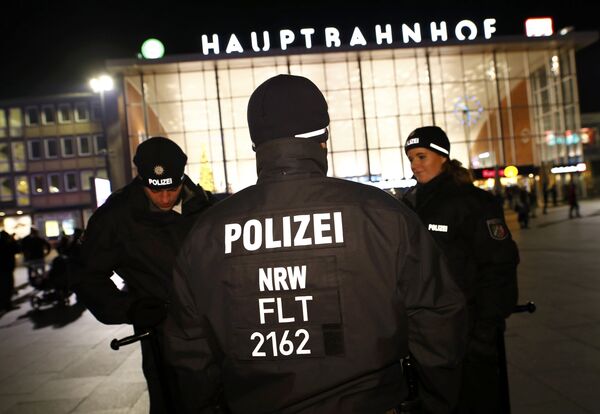German authorities will trial facial recognition technologies at Berlin’s Suedkreuz station https://t.co/4FxL29dfds
— FindBiometrics (@FindBiometrics) 13 June 2017
The German federal police, the Bundeskriminalamt (BKA) believe the facial recognition software could one day give them the ability to track criminals and potential terrorists in real-time situations.
Last year a 24-year-old asylum seeker from Tunisia, Anis Amri, went on the run after crashing a truck into a Christmas market at Breitscheidplatz in Berlin, killing 12 people and injuring 49. He was eventually gunned down by Italian police in Milan.

Germany's Interior Minister, Thomas de Maiziere, has been a long-standing fan of the idea of using facial recognition software in policing.
In 2016 he told a German newspaper: "I would like to use this kind of facial recognition technology in video cameras at airports and train stations. Then, if a suspect appears and is recognized, it will show up in the system."
LUL is das @stevengaetjen in Mission Impossible — Rogue Nation? pic.twitter.com/P9MRMCO22m
— Püppi (@der_Koelle) 10 June 2017
Mr. de Maiziere may have been watching too many Hollywood films.
Facial recognition software has popped up in a number of movies, including Mission Impossible: Rogue Nation, The Island and at least one James Bond film, as well as several TV series which imagine the CIA or MI6 to have similar capabilities.
But Germany is a country which is extremely sensitive about surveillance, with many people equating it to the practices of the Stasi secret police in East Germany or the Nazi-era Gestapo. So the idea of law enforcement agencies being able to track people conjures up dystopian visions among many Germans.

But recent terrorist attacks in Germany and across Europe and last year's gun massacre in Munich, in which a 19-year-old man shot dead nine people, have made many Germans re-examine their thoughts about surveillance.
It emerged after the Christmas market truck attack that Berlin had very few CCTV cameras in operation in the city. Attempts to address that had been blocked by the Pirate Party, which entered the Berlin state parliament in 2011 on an anti-surveillance agenda.
After the attack in Breitscheidplatz a German police union spokesman, Bodo Pfalzgraf, said: "We need better and more intelligent surveillance in public places and this tragedy has shown precisely why.
"We would know a lot more about the perpetrator by now if we had been allowed to install video cameras on Breitscheidplatz square. We couldn't have prevented the attack, but our investigation would be more advanced by now. CCTV can save lives".
Neuroscientists believe that there is a region of the brain, on the fusiform gyrus of the temporal lobe, dedicated to #facialrecognition.
— Caricature Howto (@CaricatureHowto) 20 June 2017
Now the BKA is preparing to go further and trial facial recognition software in the Sudkreuz subway station in Berlin.
The six-month trial will start on August 1 and will involve people having their photograph taken and are then equipped with transponders and agree to allow themselves to be tracked as they pass through a specially marked section of the station.
The BKA hope to sign up 275 volunteers and managed to recruit on the first day, having offered everything from Amazon gift certificates to an Apple Watch for the person who passes through the police surveillance zone most often.
His forthcoming HyperFace project is a set of ##wearable patterns that overloads facial recognition software with… https://t.co/ooVXdtM9yI
— SciTech & Bio News (@SciTechBioNews) 8 January 2017
Earlier this year it was reported that a Berlin-based artist, Adam Harvey, had invented special anti-surveillance clothing.
He said his Hyperface clothing was designed with patterns which appear to a computer as eyes and mouths and confuse the software to such an extent that it cannot recognize the wearer's real face.
Adam Harvey holds up HyperFace textile pattern at NYU Obfuscation workshop. pic.twitter.com/2nCVCIpp7W
— e (@vctv_images) May 3, 2017
Even if the trial goes well it may be difficult for Mr. de Maiziere to roll out the facial recognition software across Germany.
The Federal Commissioner for Data Protection, Andrea Vosshoff, said: "What they're doing at the moment is acceptable from a data protection perspective — it's legitimized by the fact that people have voluntarily agreed.
"If there weren't a clearly demarcated area, or everyone were compared with a database, regardless of whether they agreed or not, then we'd have a big problem."


